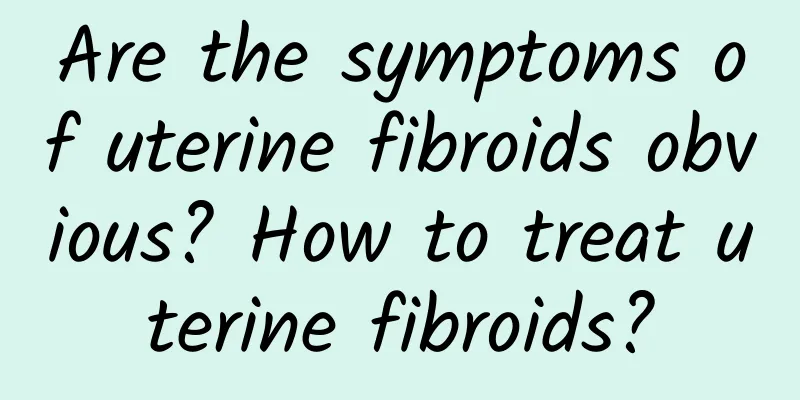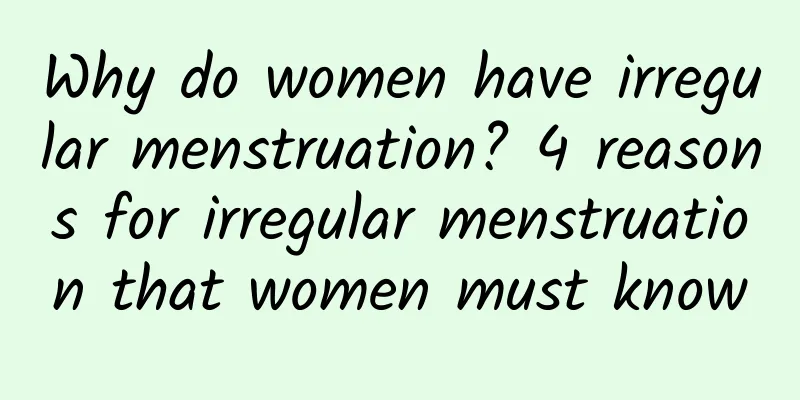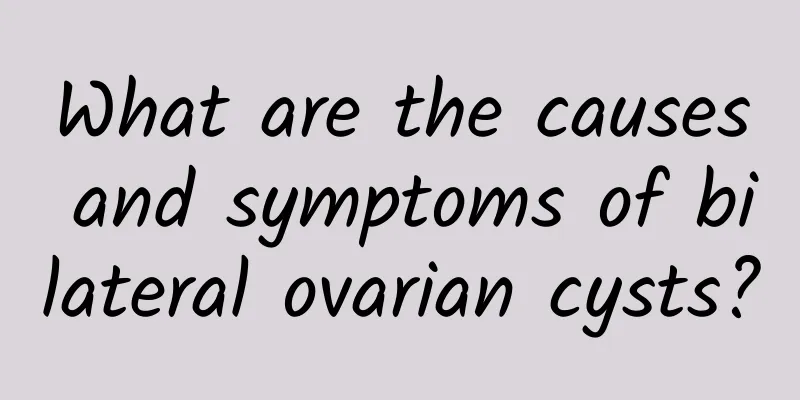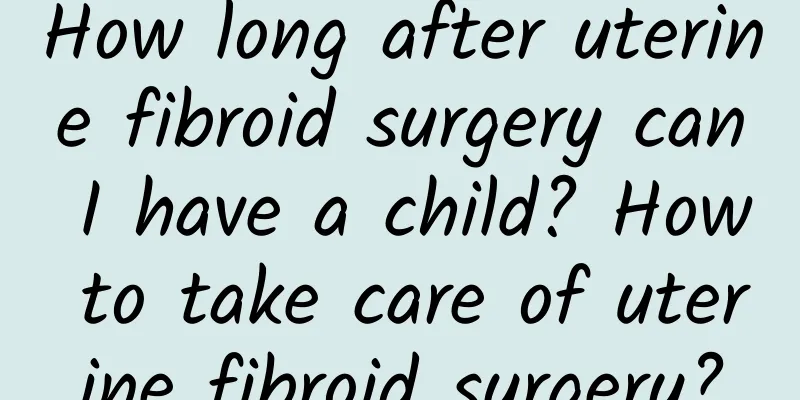Are the symptoms of uterine fibroids obvious? How to treat uterine fibroids?

|
Uterine fibroids are the main culprit of female infertility among gynecological diseases. Its existence is often the most worrying thing for female friends, because uterine fibroids are also one of the common gynecological diseases. So what are the symptoms of uterine fibroids? The following is an expert's answer to your question. Most patients have no obvious symptoms and are only occasionally found during a pelvic examination. If symptoms occur, it is closely related to the location, growth rate and degeneration of the fibroids. Abdominal mass: Abdominal distension, swelling in the lower abdomen, accompanied by a feeling of falling. Menstrual changes: The most common symptoms are shortened menstrual cycles, increased menstrual flow, prolonged menstruation, irregular vaginal bleeding, etc. Second, pain: Generally, patients do not have abdominal pain, but often have lower abdominal swelling, back pain, etc. When the subserosal fibroid pedicle is twisted, acute abdominal pain may occur, the fibroid changes red, the abdominal pain is severe, and there is a fever. Increased vaginal discharge: Increased vaginal discharge, sometimes with a large amount of pus and necrotic tissue discharged with an odor. Three compression symptoms: When the fibroid grows forward or backward, it can compress the bladder, urethra or rectum, causing frequent urination, dysuria, urinary retention or constipation. When the fibroid grows to both sides, it will form a broad ligament fibroid, compressing the ureter or hydronephrosis; if it compresses the pelvic blood vessels and lymphatic vessels, it will cause lower limb edema. 4. Hypoglycemia: Hypoglycemia with uterine fibroids is also rare. The main symptoms are low fasting blood sugar, loss of consciousness, shock, and the symptoms completely disappear after glucose injection. After tumor resection, the symptoms of hypoglycemia completely disappear. Five infertility: Fibroids compress the fallopian tubes, causing them to twist, or deform the uterine cavity, thus preventing the fertilized egg from implanting and leading to infertility. Secondary anemia: If the patient has excessive menstruation for a long time, it may lead to secondary anemia, general fatigue, pale complexion, shortness of breath, palpitations and other symptoms. The above are the symptoms of uterine fibroids. I believe that your understanding of uterine fibroids will also be deepened after reading. Infertility is the most harmful of the symptoms of uterine fibroids, so early protection and treatment are essential. We should pay attention to uterine fibroids, and early patients should also cooperate with early treatment. |
>>: Symptoms of uterine fibroids: Can uterine fibroids cause acute abdominal pain?
Recommend
Which hospital is good for treating congenital absence of vagina?
Where is the best hospital for the treatment of c...
What is the best time to have an artificial abortion?
Performing an abortion is a very cruel process, a...
Homemade slimming tea reduces belly fat and appetite according to hunger point
It is human nature to eat a lot during Chinese Ne...
Why do young women suffer from premature ovarian failure?
Many women under 30 have ovaries in their 40s bec...
What is the treatment for uterine fibroids?
What is the treatment for uterine fibroids? Many ...
What are the hazards of congenital absence of vagina to unmarried women?
What are the hazards of congenital absence of vag...
Do you have muscle weakness due to lack of exercise? If you love to do these two little actions, you will know: love to hold your chin and cross your hands
Are you one of those "mountain-like people&q...
What are the side effects of birth control pills for women?
With the development of society, people are choos...
Where is the best place to treat congenital absence of vagina?
Congenital absence of vagina basically means infe...
How to treat female cervical hypertrophy? Does cervical hypertrophy need treatment?
How to treat cervical hypertrophy in women? Exper...
How long after a miscarriage is it normal to have a period?
It is considered normal for menstruation to resum...
Back pain is caused by these NG postures! American yoga teacher teaches 5 yoga moves to relieve back pain
Back pain is caused by NG habits and postures! Of...
Will abortion lead to infertility? Will taking too many contraceptive pills lead to infertility?
Contraceptive pills are a common drug in life. If...
What causes adnexitis?
Adnexitis refers to inflammation of the fallopian...
What are the causes of cervical erosion? Five causes of cervical erosion
One of the common causes of cervical erosion is l...









